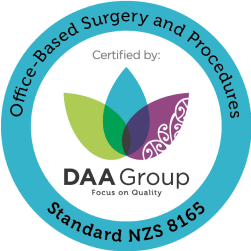Information sheets
When you visit Molecheck you will be checked by a highly-skilled skin cancer doctor who is able to diagnose melanoma and other skin cancers.
Actinic Keratoses
An Actinic Keratosis (also known as a solar keratosis) is a lesion found on sun-damaged skin. They are caused by cumulative sun exposure over many years so are more common in older people.
Basal Cell Carcinoma (BCC)
BCC is a type of skin cancer. BCC is a non-melanoma skin cancer and the most common type of all skin cancers.
Cryosurgery
Cryosurgery is the freezing of selected tissues, in this case by the use of the cryogun.
Imiquimod Cream
A cream for the treatment of Superficial Basal Cell Cancer. Imiquimod cream helps your body’s own immune system produce natural substances which help fight your BCC.
Looking after your skin
It is essential to protect your skin from UV protection and monitor your sun exposure.
Melanoma
Melanoma is a skin cancer that develops from melanocytes (pigment cells) in the skin. If detected early most melanomas are curable. If it is not caught in the early stages it can be life threatening.
Melanoma Treatment
Melanoma is a skin cancer that develops from melanocytes (pigment cells) in the skin. If detected early most melanomas are curable. If it is not caught in the early stages it can be life threatening.
Patient surgery after-care
Key information from the doctors at Molecheck so you can look after yourself following surgery.
Seborrhoeic Keratoses
Seborrhoeic Keratosis are very common, harmless skin lesions. The cause is unknown but they often run in families. Some people develop large numbers of them. They usually do not cause symptoms but can occasionally itch, bleed or catch on clothing.
Squamous Cell Carcinoma (SCC)
SCC is a type of skin cancer. SCC is a non-melanoma skin cancer and the second most common skin cancer in New Zealand.
Sun protection and Sunscreen
Apart from causing skin cancer, too much sun also damages the skin cells causing wrinkles, freckles, thinning of the skin and dilated blood vessels. Sun protection is crucial for everybody. So protect yourself – and your loved ones – from the sun by applying an SPF50+ sunscreen.
Vitamin B3 (nicotinamide)
Australian Researchers have recently released data revealing Nicotinamide; a form of vitamin B3, reduces the risk of non-melanoma skin cancer and a skin cancer precursor – actinic keratosis.





